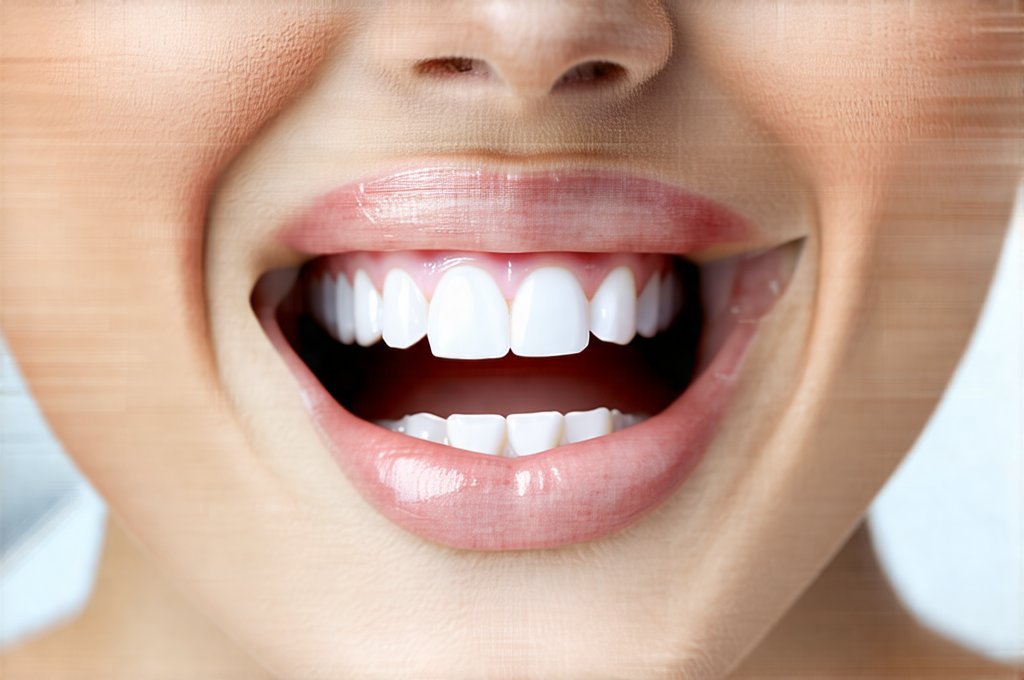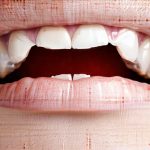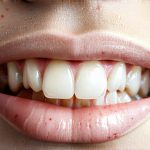The seemingly simple act of chewing is far more complex than many realize, serving as the critical first step in the entire digestive process. It’s not just about breaking down food; it’s about preparing it for optimal nutrient absorption and minimizing strain on the rest of your digestive system. Often overlooked, dental health plays a pivotal role in this initial phase, directly impacting how efficiently we extract nourishment from our meals. A healthy mouth isn’t merely aesthetic – it’s foundational to overall well-being, influencing everything from gut health to systemic inflammation.
The connection between oral health and digestion extends beyond just the ability to physically break down food. The condition of our teeth, gums, and jaw all influence how we chew, impacting the surface area of food particles, the release of digestive enzymes initiated in the mouth, and even the signals sent to the gut preparing it for incoming nutrients. Poor dental health can create a cascade of negative effects, hindering digestion and potentially leading to nutritional deficiencies or gastrointestinal distress. This article will explore the intricate relationship between dental well-being, chewing mechanics, and ultimately, digestive efficiency, providing insights into maintaining both oral and overall health.
The Mechanics of Chewing & Its Initial Impact on Digestion
Chewing, technically known as mastication, is a multifaceted process that goes far beyond simply crushing food. It’s the initial stage where food is physically broken down into smaller pieces, increasing its surface area for enzymatic action. Simultaneously, saliva – containing enzymes like amylase which begins carbohydrate digestion – is mixed with the food bolus, initiating chemical breakdown. This pre-digestion in the mouth significantly reduces the workload of the stomach and small intestine. A healthy bite—where upper and lower teeth meet evenly—is crucial for efficient chewing; misalignment or missing teeth disrupt this process.
The jaw muscles involved in chewing are incredibly strong, capable of exerting significant force. However, if dental issues – like cavities, gum disease, or temporomandibular joint (TMJ) disorders – compromise the structure or function of the mouth, these muscles can become overworked and strained. This not only leads to discomfort but also alters chewing patterns, often resulting in inadequate food breakdown. Imagine trying to efficiently chop vegetables with a dull knife versus a sharp one; the same principle applies to your teeth and their impact on digestive efficiency.
Furthermore, the act of chewing stimulates saliva production, which is essential for lubricating food, making it easier to swallow, and neutralizing stomach acids. Saliva also contains lysozyme, an enzyme with antibacterial properties that helps protect against oral infections, contributing further to overall health. Compromised dental health reduces salivary flow, potentially impacting all these crucial functions and increasing the risk of digestive problems. How GERD affects morning breath can also contribute to reduced saliva production.
The Role of Tooth Loss & Its Consequences
Tooth loss, whether due to decay, gum disease, or injury, dramatically impacts chewing efficiency. Even a single missing tooth can disrupt the natural bite and lead to uneven pressure distribution across remaining teeth. This can accelerate wear and tear on those teeth, potentially leading to further damage and more tooth loss in a vicious cycle. More significantly, it reduces the ability to effectively break down food, forcing individuals to rely heavily on front teeth for chewing or avoiding certain foods altogether.
- Reduced chewing efficiency leads to larger food particles entering the digestive system, requiring more effort from the stomach and intestines.
- This can lead to malabsorption of nutrients as the increased particle size limits enzyme access.
- Difficulty chewing often results in dietary changes, potentially leading to nutritional deficiencies if individuals avoid essential foods like fruits, vegetables, or lean proteins.
The consequences extend beyond just nutrient absorption. Larger food particles require more digestive effort and may contribute to bloating, gas, and discomfort. Over time, this can even increase the risk of developing gastrointestinal disorders. Dentures or dental implants are often used to restore chewing function after tooth loss, but even these prosthetics don’t always replicate the efficiency of natural teeth. Maintaining existing teeth through preventative care is therefore always preferable. How portion control can help minimize stress on damaged teeth while chewing.
Gum Disease & Its Impact on Digestive Processes
Gum disease – ranging from gingivitis (inflammation of the gums) to periodontitis (severe gum infection affecting bone and tissues) – profoundly affects dental health, and consequently, digestion. Inflammation in the mouth doesn’t remain localized; it can contribute to systemic inflammation throughout the body, impacting gut health and overall immune function. The chronic inflammatory state associated with periodontitis has been linked to increased intestinal permeability, often referred to as “leaky gut.”
Leaky gut allows undigested food particles and toxins to enter the bloodstream, triggering an immune response and potentially leading to a variety of health problems, including digestive issues, autoimmune diseases, and even cardiovascular disease. Furthermore, gum disease can affect taste perception, making food less appealing and potentially reducing appetite. This further exacerbates nutritional deficiencies and compromises overall well-being. Stress and mental health can also weaken the immune system and exacerbate gum disease symptoms.
Addressing gum disease through proper oral hygiene – regular brushing, flossing, and professional cleanings – is therefore crucial not only for maintaining dental health but also for supporting a healthy digestive system. Early detection and treatment are key to preventing the progression of gum disease and minimizing its impact on overall health.
TMJ Disorders & Their Influence on Chewing Functionality
Temporomandibular joint (TMJ) disorders encompass a range of conditions affecting the jaw joints and surrounding muscles. These disorders can cause pain, clicking or popping sounds in the jaw, limited jaw movement, and difficulty chewing. The resulting discomfort often leads to altered chewing patterns, with individuals favoring one side of the mouth over the other, or avoiding hard or chewy foods altogether.
This uneven chewing stresses the TMJ further, creating a feedback loop that exacerbates the condition. Inadequate food breakdown due to altered chewing mechanics places an increased burden on the digestive system, similar to what occurs with tooth loss. The pain associated with TMJ disorders can also lead to muscle tension in the neck and shoulders, contributing to additional discomfort and potentially impacting posture. How posture affects digestion is an often overlooked factor that can contribute to overall digestive distress.
Managing TMJ disorders typically involves a multi-faceted approach including:
1. Stress management techniques – stress often exacerbates TMJ symptoms.
2. Physical therapy – exercises to strengthen jaw muscles and improve range of motion.
3. Dental appliances – night guards or splints to prevent teeth grinding.
Addressing the underlying cause of TMJ disorders is vital for restoring chewing functionality and preventing long-term digestive issues. Stress affects liver function which can also impact overall health and exacerbate TMJ symptoms.
Maintaining Dental Health for Optimal Digestion
Preventative dental care is paramount for ensuring efficient chewing and digestion. This encompasses a comprehensive approach that includes regular check-ups, professional cleanings, and consistent at-home oral hygiene practices. Brushing twice daily with fluoride toothpaste removes plaque and bacteria, preventing cavities and gum disease. Flossing daily cleans between teeth where brushes can’t reach, removing food particles and further disrupting plaque formation.
Beyond the basics, dietary choices also play a significant role in dental health. Limiting sugary foods and drinks reduces the fuel source for cavity-causing bacteria. Consuming calcium-rich foods strengthens tooth enamel, while vitamin C supports healthy gums. Staying hydrated promotes saliva production, aiding in both oral hygiene and digestion. A proactive approach to dental care isn’t just about preventing cavities; it’s about safeguarding your digestive health and overall well-being. Overeating affects the valve between the stomach and throat, impacting digestion as well.
Ultimately, recognizing the interconnectedness between oral health and digestive efficiency is crucial for making informed choices that support a healthy lifestyle. By prioritizing preventative dental care, addressing any existing issues promptly, and adopting healthy dietary habits, we can ensure our mouths remain capable of efficiently preparing food for optimal digestion and nutrient absorption – setting the stage for long-term health and vitality. GERD and sore gums are often connected, highlighting the importance of dental care for those with GERD.


















